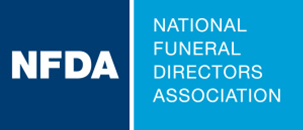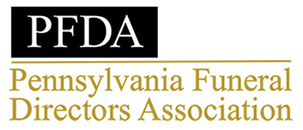
Losing a loved one is something not many of us are ready to deal with.
In the midst of grief, the task of planning a funeral can feel overwhelming. This is where funeral directors come in. They provide guidance and support, helping families navigate the complex and often emotional process of planning a meaningful farewell.
Thanks to the valuable assistance provided by funeral homes, they have become very common in the USA, with over 22,000 of them operating as of 2023.
This blog post will help you understand the role of funeral directing services, their responsibilities, and how they can ease the burden during one of life’s most challenging times. By understanding what funeral directors do, you’ll feel more prepared when you need their services.
What is a Funeral Director?
A funeral director, sometimes known as an undertaker or mortician, is a licensed professional who handles various aspects of a funeral. Their primary role is to assist grieving families in organizing and carrying out funeral services. This includes everything from managing legal paperwork to coordinating with service providers like florists, clergy, and cemeteries.
Funeral directors are often seen as the backbone of funeral planning. Their training enables them to offer both practical and emotional support, ensuring that the service honors the deceased while respecting the wishes and traditions of the family.
The Key Responsibilities of a Funeral Director
Funeral directing services are wide-ranging, and each task is carefully handled to ensure everything runs smoothly. Below are some of the most critical roles they play:
1. Initial Consultation and Planning
When a family reaches out to a funeral home, the first step is usually an initial consultation with the funeral director. This meeting allows the director to listen to your wishes, answer any questions, and explain the different services available. Whether you’re considering a traditional burial, cremation, or a personalized service, the funeral director will help you make informed decisions that align with your needs and values.
This is also the stage where budget considerations come into play. Funerals can be expensive, with costs varying depending on the type of service, transportation, flowers, and other elements. A good funeral director will guide you through your options, helping you choose the right services while being mindful of your financial situation.
2. Legal Documentation
One of the more challenging aspects of planning a funeral involves navigating the legal paperwork. Funeral directors are well-versed in handling the necessary documents, such as obtaining a death certificate and filing it with the appropriate government offices. If cremation or burial requires specific permits, they’ll manage those as well.
For families dealing with the added complexity of insurance claims or veteran benefits, funeral directors can assist with the paperwork, ensuring that all legal requirements are met. If the deceased did not leave clear instructions or a will, the funeral director can help facilitate conversations among family members to reach a consensus on the arrangements.
3. Body Preparation and Care
Caring for the deceased’s body is a deeply personal part of funeral planning, and funeral directors approach this responsibility with sensitivity and respect. If the family chooses an open-casket service, the funeral director will oversee the embalming process, ensuring the body is preserved and presented in a dignified manner.
Other tasks may include dressing the deceased in specific clothing, applying makeup, or coordinating the cremation process if that is the chosen option. The funeral director ensures that cultural or religious customs are honored and that the family’s wishes are followed closely.
4. Funeral Service Planning
The funeral service is a vital part of saying goodbye, and funeral directors play an essential role in making sure everything comes together seamlessly. Whether you’re planning a religious ceremony, a celebration of life, or a simple graveside service, the director will manage all the logistics. This includes arranging the venue, seating, music, and any readings or eulogies.
A good funeral director ensures that the service reflects the personality and life of the deceased. Whether it’s through incorporating their favorite songs, displaying photos, or allowing loved ones to share personal memories, the director will help create a ceremony that honors the person you’ve lost.
5. Transportation and Burial or Cremation Coordination
After the service, the funeral director manages the transportation of the deceased to their final resting place. This can involve organizing hearses and limousines for family members and liaising with cemeteries or crematoriums.
For families opting for a graveside service, the funeral director ensures the burial is conducted according to all legal and procedural requirements. In the case of cremation, they’ll guide you through the options for the ashes, whether you wish to bury them, scatter them, or keep them in an urn.
6. Emotional Support and Resources
One of the most underappreciated aspects of a funeral director’s role is the emotional support they provide to grieving families. Funeral directors are trained to be empathetic and sensitive to the needs of those going through the pain of loss. They offer a compassionate presence, listening to your concerns and providing guidance with patience and understanding.
Many funeral directing service providers also offer grief counseling services or can recommend local therapists or support groups. The emotional weight of losing a loved one can be heavy, and having someone to lean on who understands the process can make a world of difference.
Frequently Asked Questions
Below are some commonly asked questions to consider:
1. How long does it take to plan a funeral?
The timeline for planning a funeral can vary, but typically, funerals are arranged within a week of the death. However, factors such as cultural practices, the availability of venues, or family preferences can affect this timeline. Funeral directors will work with you to accommodate any specific needs.
2. Can a funeral director help if my loved one passed away abroad?
Yes, many funeral directing service providers are experienced in handling the repatriation of bodies from abroad. They will assist with the necessary paperwork, transportation, and coordination with international authorities to bring your loved one home.
3. Are there eco-friendly funeral options?
Yes, many funeral homes offer green burial options, which are more environmentally friendly. These may include biodegradable caskets, natural burial sites, and services that minimize the environmental impact. If you’re interested in this, your funeral director can provide more information on available options.
Speak with funeral directing services in your area
Funeral directors do more than organize logistics. They help create a meaningful space for families to honor their loved ones. Through their guidance and care, they allow families to focus on what truly matters—remembering and celebrating the life that was lived. Their ability to balance the practical elements of funeral planning with emotional support is what makes them such an invaluable resource during times of grief.
If you need help planning a funeral for a loved one, get in touch with professional funeral services for expert guidance and support.



